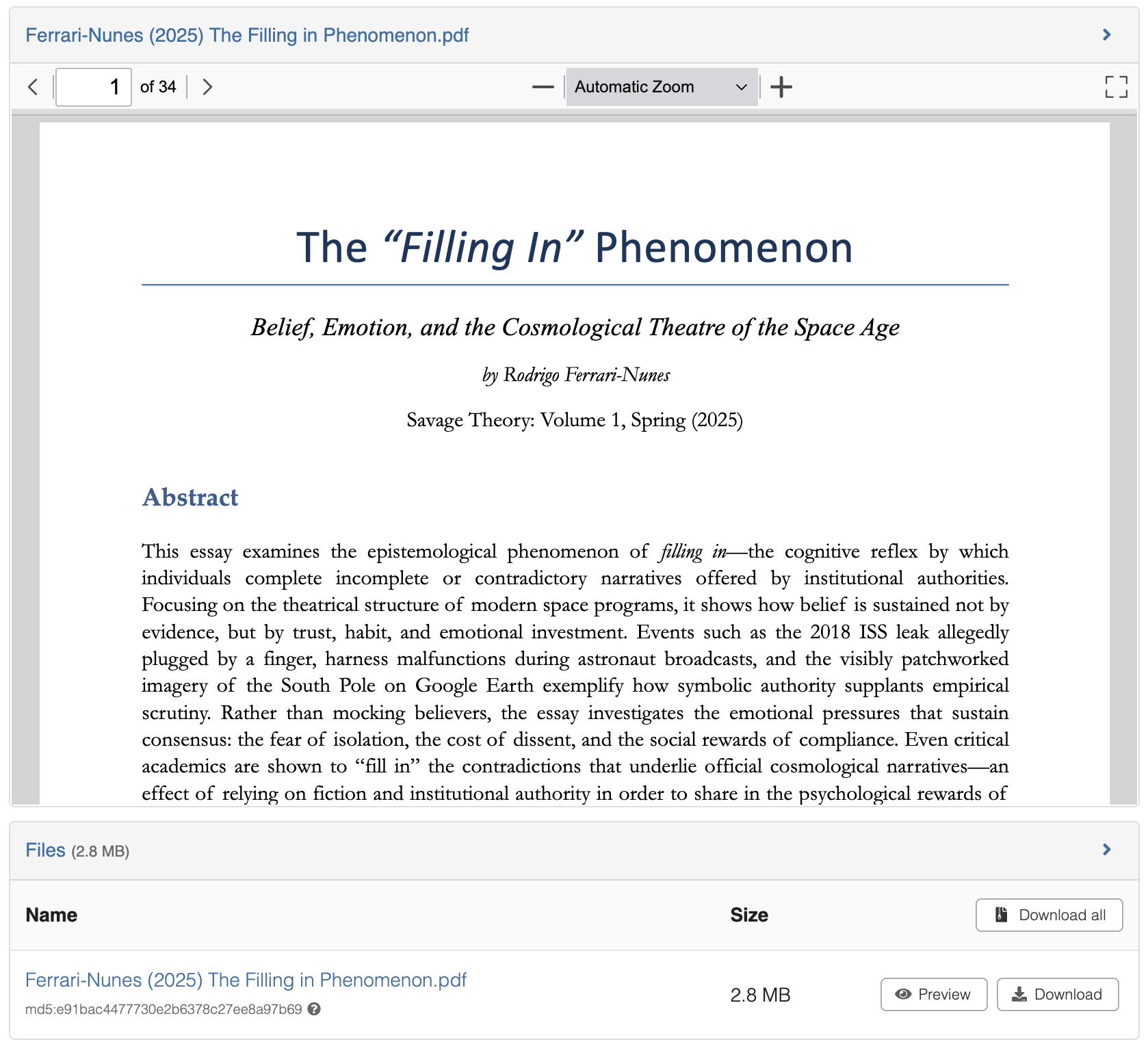Abstract
This essay examines the epistemological phenomenon of filling in—the cognitive reflex by which individuals complete incomplete or contradictory narratives offered by institutional authorities. Focusing on the theatrical structure of modern space programs, it shows how belief is sustained not by evidence, but by trust, habit, and emotional investment. Events such as the 2018 ISS leak allegedly plugged by a finger, harness malfunctions during astronaut broadcasts, and the visibly patchworked imagery of the South Pole on Google Earth exemplify how symbolic authority supplants empirical scrutiny. Rather than mocking believers, the essay investigates the emotional pressures that sustain consensus: the fear of isolation, the cost of dissent, and the social rewards of compliance. Even critical academics are shown to “fill in” the contradictions that underlie official cosmological narratives—an effect of relying on fiction and institutional authority in order to share in the psychological rewards of a fabricated vision designed to protect the State and its role as cosmic gatekeeper. Those who point out these contradictions are often met with ridicule or ad hominem attacks. Filling in, in this context, serves to protect what the essay terms the Colonial Cosmology—a modern mythos that sustains imperial control by replacing empirical observation with visual spectacle, emotional manipulation, and theatrical authority, reinforcing the State’s self-appointed claim to cosmic knowledge and dominion.

